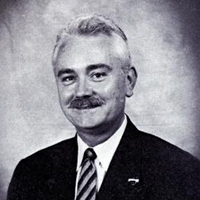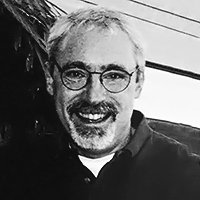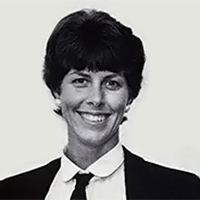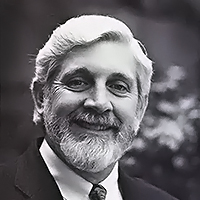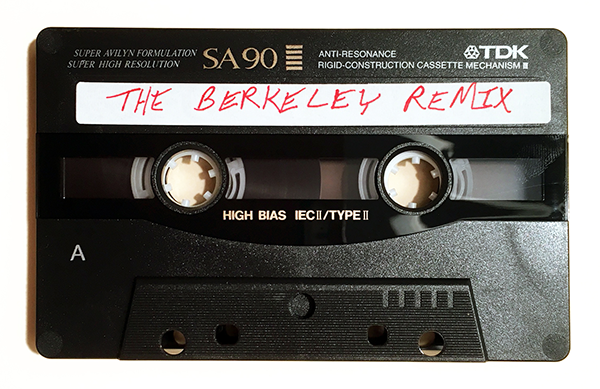
Listen to all of our podcast episodes on SoundCloud.
The Berkeley Remix podcast
Season 1
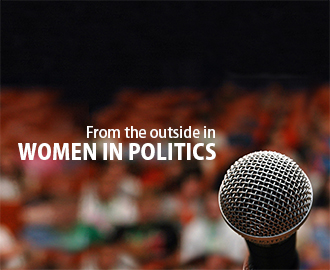
In this historic year for women in politics, our new podcast series, From the Outside In, seeks to showcase important interviews in the Bancroft Library collection with women who, against tremendous odds, broke through glass ceilings and forged their own paths in the political arena. The six episodes of this podcast chart the political advancement of women in the United States through the lives and achievements of ten noteworthy pioneers. From universal suffrage and elected office to community organizing and brokering party politics, these episodes bring to life the centuries-long struggle of women to gain their rightful place in the nation’s political system.
A production of the Bancroft Library’s Oral History Center at the University of California, Berkeley.
Narrator: Belva Davis
Researcher and Writer: Todd Holmes
Producers and Editors: Shanna Farrell, Cristina Kim
Special Assistants: Julie Allen, Paul Burnett, David Dunham, Martin Meeker, Linda Norton
Student Assistants: Amita Chauhan, Cindy Jin, Marisa Uribe
Volunteers / Interns: Meg Henderson, Mark Westlye
Project Advisor: David Boyer
Bancroft Audio Research: Lee Anne Titangos
Thanks to California Audiovisual Preservation Project (CAVPP) (Opens in a new tab.) for digitization.
This episode covers the fight for universal suffrage and the successful passage of the 19th Amendment to the U.S. Constitution, which granted all women the right to vote.
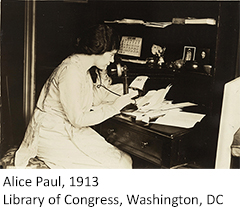
Alice Paul (Opens in a new tab.) was one of the leading activists for women’s equality in America. Born to a Quaker family in 1885, she immersed herself in the campaign for women’s suffrage, first in Great Britain and then in the United States. Throughout the 1910s, her unwavering brand of militancy inspired thousands of women to fight for universal suffrage. Her controversial efforts played a key role in securing passage of the 19th Amendment to the U.S. Constitution.
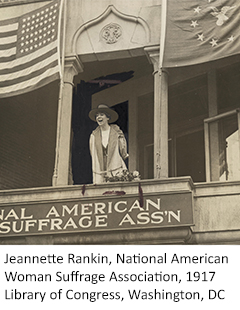
Jeannette Rankin (Opens in a new tab.) was the first woman elected to Congress. Born near Missoula, Montana in 1880, she worked as a social worker in California and Washington, where she became involved in the women’s suffrage movement. After Montana granted voting rights for women in the state, she successfully ran for Congress in 1916. In the House of Representatives, Rankin played a vital role in the passage of the 19th Amendment.

Mabel Vernon (Opens in a new tab.) was a leader in the U.S. women’s suffrage movement. A contemporary and friend of Alice Paul, Vernon was a key member of the Congressional Union for Women’s Suffrage and an active organizer of many strikes and marches in Washington, D.C., and beyond. Along with Paul and Rankin, she helped to secure the passage of the 19th Amendment.
This episode explores how LaRue McCormick and Helen Gahagan Douglas used electoral politics to advocate for change during the 1930s and 1940s. Like many women, their work focused especially on helping the poor and communities of color.
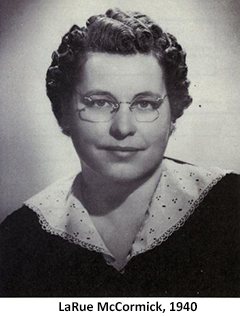
LaRue McCormick (Opens in a new tab.) was the longtime Executive Director of the International Labor Defense Fund and a Communist politician. Although she never held an elected office, McCormick ran for both the California State Senate and the Los Angeles School Board in order to challenge the Democratic Party and draw public attention to the issues facing the state’s poor and people of color.
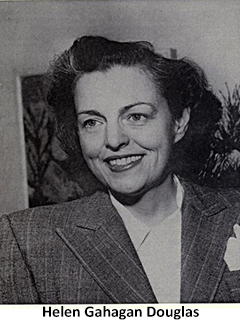
Helen Gahagan Douglas (Opens in a new tab.) was one of the first Democratic congresswomen elected from California. A well-known Hollywood actress prior to her 1944 election, Douglas was a tireless agent for change in Washington, D.C. She hired the first African American secretary on Capitol Hill and pushed for measures that would recognize and honor the service of African American WWII veterans. Her ascending political career came to an end when she lost to Richard Nixon in the now-infamous 1950 U.S. Senate race.
This episode looks at women’s political activities at the community level. For civil rights activist Francis Albrier, community organizing proved extremely important in breaking down racial barriers and advancing civil rights reforms.
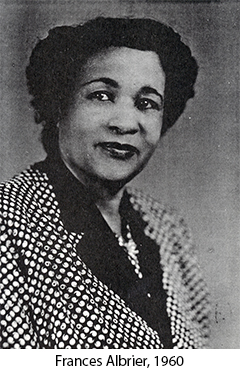
Frances Albrier (Opens in a new tab.) was a civil rights activist and community organizer. Raised in Tuskegee, Alabama, Albrier was influenced by both the famed Tuskegee Institute and her family’s own commitment to education and equality. After graduating from Howard University, Albrier moved to Berkeley, California, where she quickly became an active member of the local political scene. Working largely outside of electoral politics, Albrier fought to ensure that Berkeley schools hired African American teachers. She also spearheaded the integration of the Kaiser Shipyards during WWII. In the years that followed, Albrier would continue to shape political progress as the first African American woman elected to Alameda County’s Democratic Central Committee.
This episode covers the political ascendance of women of color in 1960s-era California. Featuring March Fong Eu, this episode shows how women broke through the dual barriers of race and gender to take their place in state and national politics.
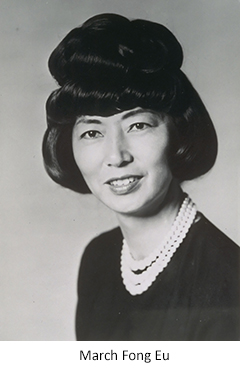
March Fong Eu (Opens in a new tab.) was a California Assemblywoman and Secretary of State. Born in the back of a Chinese hand laundry in the small town of Oakdale, Fong Eu rose from poverty to become one of the most esteemed female politicians of her generation. In 1966, she successfully ran for the state assembly, joining only one other woman in California’s legislature. She was elected Secretary of State eight years later, becoming the first Asian American woman in the United States to hold a constitutional office. She would reside in that office for nearly twenty years.
This episode explores the rise of women advisors in the structure of party politics. As seen through the experiences of Elizabeth Gatov and Patricia Hitt, women increasingly commanded equal footing in campaigns and policy discussions throughout the long 1960s era, and eventually earned a seat at a political table traditionally dominated by men.
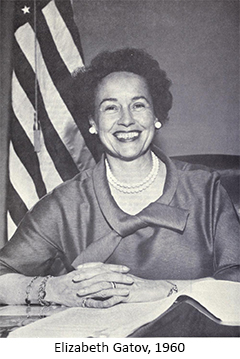
Elizabeth Gatov (Opens in a new tab.) was a national committeewoman for the Democratic Party and United States Treasurer. Starting in the 1940s, Gatov became one of the leading female advisors in California, co-chairing a host of statewide campaigns and Democratic committees. In 1960, President John F. Kennedy appointed her U.S. Treasurer. She later returned to California to manage a number of high-profile political campaigns, and in the 1970s, led the national public relations effort for Planned Parenthood.
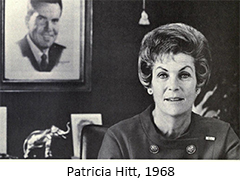
Patricia Hitt (Opens in a new tab.) was a national committeewoman for the Republican Party and Assistant Secretary of the Department of Health, Education, and Welfare. As one of the preeminent female strategists and advisors in California’s GOP, Hitt headed up the women’s division of the party on both the state and national level. In 1968, she played a key role in Richard Nixon’s successful presidential campaign. The next year, she was appointed Assistant Secretary of HEW, becoming the highest-ranking woman in the Nixon Administration.
This final episode reflects on the progress women have made in the political arena and the many struggles that still lie ahead. Featuring interviews with Senator Barbara Boxer and San Francisco Supervisor Jane Kim, the finale looks at the role of women in politics toward the end of the twentieth century and explores the possibilities in the twenty-first.
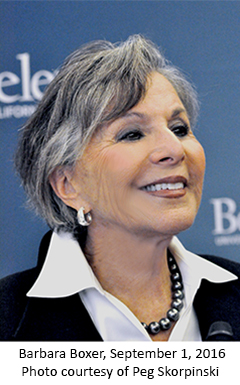
Barbara Boxer has been a U.S. Democratic Senator from California since 1993. From 1983 to 1993, Boxer served in the U.S. House of Representatives. Born in Brooklyn, New York, Boxer moved to California in the 1970s, where she served on the Marin Board of County Supervisors for several years. In office, Boxer has fought for stronger environmental measures, healthcare research, and reproductive rights. She will be retiring from political office in 2017.
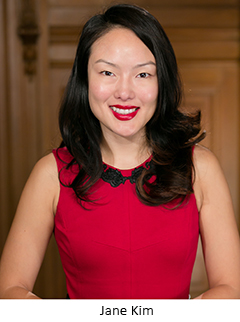
Jane Kim is the San Francisco Supervisor representing District 6. Since 2011, Jane Kim has advocated for affordable housing, stronger environmental protections, and a higher minimum wage. Before joining the San Francisco Board of Supervisors, Kim was president of the San Francisco School Board. She is the city’s first Korean American elected official and ran for the California State Senate in 2016.
Web links
Women of Protest Collection at the Library of Congress
Transcript links
Suffragist Oral History Project
Biographies
Alice Paul
Adam, Katherine H. and Michael L. Keen. Alice Paul and the American Suffrage Campaign. University of Illinois Press, 2008.
Zahniser, Jill Diane. Alice Paul: Claiming Power. Oxford University Press, 2014.
Jeannette Rankin
Lopach, James J. and Jean A. Luckowski. Jeannette Rankin: A Political Woman. University Press of Colorado, 2005.
Smith, Norma. Jeannette Rankin: America’s Conscience. Montana Historical Press, 2002.
Helen Gahagan Douglas
Denton, Sally. The Pink Lady: The Many Lives of Helen Gahagan Douglas. Bloomsbury Press, 2009.
Scobie, Ingrid Winther. Center Stage: Helen Gahagan Douglas, A Life. Oxford University Press, 1992.
Barbara Boxer
Boxer, Barbara. The Art of Tough: Fearlessly Facing Politics and Life. Hachette Books, 2016.
Further reading
Dolan, Julie, Melissa M. Deckman, and Michele L. Swers. Women and Politics: Paths to Power and Political Influence. Rowman & Littlefield, 2016 (third edition).
Jameson, Elizabeth and Susan Armitage, eds. Writing The Range: Race, Class, and Culture in the Women’s West. University of Oklahoma Press, 1997.
Kleinberg, S. Jay, Eileen Boris, and Vicki L. Ruiz. The Practice of U.S. Women’s History: Narratives, Intersections, and Dialogues. Rutgers University Press, 2007.
Krook, Mona Lena and Sarah Childs. Women, Gender, and Politics: A Reader. Oxford University Press, 2010.
Ruiz, Vicki L. and Ellen Carol DuBois. Unequal Sisters: A Multicultural Reader in U.S. Women’s History. Routledge, 2000 (third edition).
Scharff, Virginia and Carolyn Brucken. Home Lands: How Women Made the West. University of California Press, 2010.
Season 2
We are proud to present the second season of the Berkeley Remix podcast. In this special two episode season, we take a look at some exciting new oral history projects.
A production of the Bancroft Library’s Oral History Center at the University of California, Berkeley.
In the first episode, Shanna Farrell interviews Martin Meeker about his newly released Freedom to Marry project. He discusses the origin of the project, his cohort of narrators, the power of language, and the impact of the movement. We hear a clip from one of his interviews with Thalia Zepatos.
In our second episode, we flip the script and Martin talks to Shanna about her forthcoming book, “Bay Area Cocktails: A History of Culture, Community and Craft,” out September 2017. They talk about the basis for the project, the relationship between food, agriculture, and cocktails, and why the project is about more than what’s in the glass.
Season 3
Introduction
This podcast is about the politics of the first encounters with the AIDS epidemic in San Francisco. The six episodes draw from the thirty-five interviews that Sally Smith Hughes conducted in the 1990s. A historian of science at UC Berkeley’s Oral History Office, Sally interviewed doctors, nurses, researchers, public health officials, and community-health practitioners to learn about the unique ways that people responded to the epidemic. Although these interviews cover a wide range of topics, including the isolation of the virus HIV and the search for treatments, the interviews we selected for this podcast are more focused on public health, community engagement, and nursing care. Most of the following podcast episodes are about the period from early 1981, when the first reports emerged of an unknown disease that was killing gay men in San Francisco, to 1984 and the development of a new way of caring for people in a hospital setting.
Prologue
Episode 0: Prologue — Interview with an Interviewer — Sally Smith Hughes
This interview with UC Berkeley Oral History Center historian Sally Smith Hughes introduces her interviews with the physicians, public health officials, researchers, and nurses who faced the AIDS epidemic in San Francisco in the early 1980s. Paul and Sally also discuss the podcast First Response: AIDS and Community in San Francisco, which is based on Sally’s interviews from the 1990s.
Credits
This podcast was produced, written, and narrated by Paul Burnett, and edited by Allie Cheroutes and Paul Burnett. Production and promotion assistance provided by David Dunham and Shanna Farrell. Special thanks to the band Do Make Say Think, whose music can be found at Constellation Records or your local record store. Additional track by Borrtex opening Episode 2, “Waiting for You.” Berkeley Remix theme music by Paul Burnett. Thanks also to Scott Calonico for his piece “When AIDS was Funny” and to the archives of the Ronald Reagan Library, UC San Francisco, and San Francisco State University. All interview clips were taken from the Oral History Center collections, and the audio digitization was undertaken by David Dunham, and student employees Marisa Uribe, Carla Palassian, Aamna Haq, Hailie O’Brien, and Cindy Jin. Graphic Design by Maggie Deng and Cindy Jin.
Episode 1: San Francisco explores the landscape of gay culture in 1970s San Francisco. Declared “the gay capital of the world” by Life magazine in 1964, the City by the Bay consolidated its reputation as a gay mecca in the 1970s, offering a place where queer men, women, and transgender folk could express themselves freely. We hear from healthcare practitioners about what it meant to be gay in the sexual revolution and the promise San Francisco held for a free and empowered gay community.
Episode 2: The Virus of Fear takes a look at the medical community’s first encounter with AIDS in San Francisco. As reports began to circulate of a mysterious disease affecting gay men, fear soon spread just as fast as the virus itself. Here medical researchers and healthcare professionals discuss how the health community grappled with this fear of the unknown: from medical institutions and staff refusing to treat patients, to the internal conflict of the health practitioners themselves as they faced the reality that their pursuit to save lives could very well risk their own. Ultimately, the management of fear — among patients, the public, and the health community itself — proved to be one of the first steps in the city’s medical response to AIDS.
Episode 3: The Gay-Positive Health Community Before AIDS takes a step back and examines the efforts of public health officials in San Francisco to establish a relationship of trust with the gay community. For years, homophobia had pushed this ostracized community, gay men in particular, to seek underground health services at establishments where they could receive treatment from sympathetic or at least non-judgmental professionals. By the 1970s, however, bridges began to develop between health officials and the gay community, just as physicians within the community itself started to form their own public health networks. In this episode, we hear from practitioners from inside and outside the gay community on the work undertaken to create a gay-positive health response to rising epidemics before the arrival of AIDS in the city.
Episode 4: The Bathhouse Crisis explores a crisis that threatened to derail the developing collaboration between public health officials and the gay community. By the late 1970s, researchers had identified the city’s bathhouses as sites for the spread of disease, especially among gay men. Facing ineffective educational initiatives and a new, fast-growing epidemic, San Francisco’s Pubic Health Department ordered the closure of bathhouses in October 1984. The bonds of trust that had slowly developed between the public health service and the gay community began to fall apart, as emergency action to address the spread of disease collided with the legacy of homophobia and persecution. Here public health officials and physicians within the gay community discuss the Bathhouse Crisis and the strained relations that resulted.
Episode 5: The Fight for Resources charts the uphill battle medical researchers faced in securing the needed resources and funding to combat the AIDS epidemic. The discovery of the epidemic coincided with the rise of fiscal and social conservatism in national politics with the election of Ronald Reagan. Public health budgets were slashed and there was little sympathy or support to fight a disease affecting gay men. In this episode, medical researchers from the Centers for Disease Control and University of California San Francisco’s KS Clinic reveal how they had to improvise in this context to piece together the crucial resources needed to make headway against the epidemic.
Episode 6: The San Francisco Model (Ward 5b), our final episode, looks at how the collaboration between community members and health officials ultimately came to redefine care for AIDS. We hear medical staff and community members describe the multi-pronged approach developed at San Francisco General Hospital’s Ward 5b, which combined care, research, social work, and community involvement. Together, health officials and community members pioneered a new way of treating epidemic disease and human suffering — a new way that became known as the San Francisco Model.
Season 4
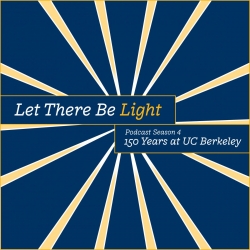
This season of the Berkeley Remix we’re bringing to life stories about our home — UC Berkeley — from our collection of thousands of oral histories. Please join us for our fourth season, Let There Be Light: 150 Years at UC Berkeley, inspired by the university’s motto, Fiat Lux. Our three episodes this season explore issues of identity — where we’ve been, who we are now, the impact of Berkeley’s identity as a public institution, and the intertwined history of campus and community. All episodes include audio from interviews from the Oral History Center of The Bancroft Library.
Written and produced by historian Amanda Tewes, Oral History Center
“From early housing cooperatives during the Great Depression, to fights for racial and gender parity on campus, housing has been on the frontlines of the battle for student welfare throughout the university’s history.”
We’ve come to think of communal living as a tradition for students, a rite of passage, and a valuable lesson in community building. But for much of its history, UC Berkeley didn’t even have residence halls! In this episode, we explore what home and community has meant to students at Cal, and how accessible spaces have supported social justice movements on and beyond campus.
This episode includes audio from the Oral History Center of The Bancroft Library, including Rev. Allen C. Blaisdell, Jackie Goldberg, Frank Inami, Marguerite Kulp Johnston, Edward V. Roberts, and Dorothy Walker. Voiceover of Ruth Norton Donnelly’s interview by Shanna Farrell. Audio from the “Which Campus?” video courtesy of The Bancroft Library. (Written version of Sleeping with the Light On)
Written and produced by historian Paul Burnett, Oral History Center
“We’re used to hearing about how game-changing technology makes whole new ways of living and working possible. But what makes the game-changing technologies possible? UC Berkeley — a public, state university — established institutions and teams that would make the culture of innovation possible.”
“Berkeley Lightning” is about the contributions of UC Berkeley Engineering to the rise of the semiconductor industry in what became known as Silicon Valley in the 1960s and 1970s. In contrast to the influential entrepreneurial spirit of a private university like Stanford, Berkeley’s status as a public institution had a different impact on Silicon Valley. We focus on the development of the first widely used design program for prototyping microchips. Originally designed by and for students, the software spread like lightning in part because Berkeley, as a public institution, made it available free of charge. The world has not been the same since.
This episode includes audio from the Oral History Center of The Bancroft Library, including Paul R. Gray, Professor of Engineering Emeritus, Department of Electrical Engineering and Computer Science and Dr. Laurence Nagel, CEO Omega Enterprises, PhD from UC Berkeley EECS, and former senior manager at Bell Laboratories (oral history forthcoming). (Written version of Berkeley Lightning)
Written and produced by interviewer Shanna Farrell, Oral History Center
“What Alice Waters and the Chez Panisse team did was probably the most radical gesture in restaurants and cooking in America in the last century. It’s important that it happened in Berkeley.”
Berkeley After Dark is about the connection between the history of farm-to-table eating and the campus community. Alice Waters helped pioneer the concept of eating local, seasonal, and organic food at her restaurant, Chez Panisse, located just a few blocks from campus on Shattuck Avenue. This grew out of her combined love of feeding people and political activism, and evolved into a culinary revolution. And it couldn’t have happened without UC Berkeley. The intertwined history between campus and the community gave Chez Panisse an audience, and a workforce, creating a symbiotic relationship.
This episode includes audio from the Oral History Center of The Bancroft Library, including: Christopher Lee, Narsai David, and Dylan O’Brien. Voiceover of Marion Cunningham’s interview by Amanda Tewes and Paul Bertolli’s interview by John Fragola. Supplemental interviews with Chris Ying. (Written version of Berkeley After Dark)
Season 5
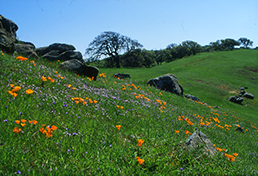
In season 5 of the Berkeley Remix, we’re diving into the long history of the East Bay Regional Park District, which was founded in 1934. All of the episodes are set in the East Bay parks and are about people who’ve made a difference. Some are stories that you’re already familiar with, but haven’t heard like this. Over the course of three episodes, we’ll explore the park district’s integral role in fighting the 1991 Oakland Hills Fire, of being on the forefront of gender equality in the workplace, and how the districts efforts to preserve land benefited the public — through the lens of the local equestrian community.
All episodes feature interviews from the East Bay Regional Park District Oral History Project. A special thank you to the East Bay Regional Park District, especially Beverly Ortiz and Brenda Montano. Photos taken by Bob Walker from the Bob Walker Collection of the Oakland Museum, courtesy of the East Bay Regional Park District. All episodes produced by Shanna Farrell and Francesca Fenzi.
Expansion of the East Bay Regional Park District
The first episode of the season dives into public use of the park. Since the district was formed in 1934, it has acquired 125,000 acres that span 73 parks. The episode begins with the role that one special volunteer-turned-employee played in convincing ranchers and landowners to sell their property to be preserved by the park district. Without the work of this man, and others like him, the public would not have access to this land. This includes the local equestrian community, whom we hear from in the rest of the episode, exploring how the district became a haven for horse lovers. (Written version of You Really Love Your Land, Don’t You?)
This episode includes interviews with Judy Irving, Don Staysa, Judi Bank, and Becky Carlson. All music by Blue Dot Sessions: “Dorica Theme” and “A Palace of Cedar.”
Gender equality in the East Bay Regional Park District
The park district employs hundreds of people, many of whom are women. This episode digs into the history of gender equality at the EBRPD. It follows the stories of two women who worked in the Tilden Corp yard, which houses heavy machinery, and how they challenged traditional gender roles in the workplace. They each have their own stories of growing their careers during affirmative action, and the impact that their work had on equality for all district employees. (Written version of There’s No Crying in Carpentry)
This episode includes interviews with Julie Haselden, Rachel MacDonald, and Stephen Gehrett. All music by Blue Dot Sessions: “Dorica Theme” and “A Palace of Cedar.”
The East Bay Regional Park District fights the Tunnel Fire
This episode explores the role of the EBRPD Fire Department in fighting the historic blaze. It explores how the fire got so bad, and the early work that district employees did to prevent large wildfires. It features interviews with district employees who managed the land and, later, who fought on the frontlines of the fire, including two UC Berkeley alumni, Anne Rockwell and Paul Miller. (Written version of Once in a Career Fire)
This episode includes interviews with Anne Rockwell, Stephen Gehrett, Michael Avalos, Paul Miller, and John Nicoles. All music by Blue Dot Sessions: “Dorica Theme,” “A Palace of Cedar,” “Drone Birch,” and “Feather on the Crest.”
Season 6
In season 6 of The Berkeley Remix, we are searching for a balm during the age of COVID-19. During these uncertain times, we at the Oral History Center would like to provide you with some relief. Episodes in this series, which we’re calling “Coronavirus Relief,” may sound different from those we’ve produced in the past that tell narratives stories drawing from our collection of oral histories. This season includes episodes with stories from the field, things that have been on our minds, interviews that have been helping us get through, and small moments of happiness.
For this episode of The Berkeley Remix, UC Berkeley undergraduate apprentice Miranda Jiang created a podcast about Chinese American Youth from Berkeley, Oakland, and Emeryville, in the 1920s, ’30s, and ’40s based on UC Berkeley oral histories. “Rice All the Time?” Chinese Americans in the Bay Area in the Early 20th Century is an oral history performance, brought to you in an audio format and performed by five Chinese American Berkeley students.
Season 7
This season, The Berkeley Remix is headed east of San Francisco to Mount Diablo in Contra Costa County. In this three-part series, Fifty Years of Save Mount Diablo, we look at land conservation through the lens of Save Mount Diablo, a local grassroots organization. It’s been doing this work since December 1971—that’s 50 years. This season focuses on the organization’s past, present, and future. Join us as we explore the impact that Save Mount Diablo has had on land conservation in the Bay Area and beyond.
In this episode, we explore Save Mount Diablo’s past. From its origins in the environmental movement to its successful political activism to its incorporation as a nonprofit, Save Mount Diablo built a solid foundation for fifty years of land conservation. This episode asks: why save Mount Diablo? What did it take to save Mount Diablo? What sustained Save Mount Diablo? Themes explored include youthful energy, experienced activists, political goodwill, and money.
In this episode, we explore Save Mount Diablo’s present. From supporting ballot measures and fundraising efforts to cultivating relationships with nature enthusiasts and artists to collaborating with outside partners, Save Mount Diablo continues to make contributions to the environmental movement beyond its size. This episode asks: now that Save Mount Diablo has conserved the land, how does it take care of it? How does Save Mount Diablo continue to build a community? How are artists activists, and how do they help support Save Mount Diablo? How does Save Mount Diablo sustain partnerships to conserve land? Among other issues, the episode looks at how the organization brought back peregrine falcons that had been killed off by DDT.
In this episode, we explore Save Mount Diablo’s future. From addressing the challenges of COVID-19 to fundraising efforts to protecting land and biodiversity in the entire Diablo Range to mitigating the impacts of climate change to expanding membership and partnerships, Save Mount Diablo still has a lot of work ahead. This episode asks: what challenges does Save Mount Diablo — and the environmental movement — face today? What can Save Mount Diablo do about climate change? What does the future of Save Mount Diablo look like? This episode begins with a reflection on the pandemic and how it affected people’s view of nature; then goes on to address climate change, drought, fires, land preservation, wildlife protection, and how to bring people together to accomplish environmental goals.
Season 8
Season 8 of The Berkeley Remix podcast, 'From Generation to Generation': The Legacy of Japanese American Incarceration, features stories of activism, contested memory, identity and belonging, as well as artistic expression and memorialization of incarceration. It was produced by Rose Khor, Roger Eardley-Pryor, Shanna Farrell, and Amanda Tewes, and narrated by Devin Katayama.
In episode 1, we explore activism and civic engagement within the Japanese American community.
In this episode, we explore the history, legacy, and contested memory of Japanese American incarceration during World War II.
In this episode, we explore identity and belonging in the Japanese American community.
In this episode, we explore creative expression, healing, and the memorialization of Japanese American incarceration.
Season 9
The podcasts for “Voices for the Environment: A Century of Bay Area Activism” are part of a Bancroft Library Gallery exhibition at UC Berkeley. This exhibit charts the 20th-century evolution of environmentalism in the San Francisco Bay Area through the voices of activists who galvanized public opinion to advance their causes — from wilderness preservation, to economic regulation, to environmental justice. The “Voices for the Environment” exhibition was curated by UC Berkeley’s Oral History Center and was free and open to the public from Oct. 6, 2023 to Nov. 15, 2024, in The Bancroft Library Gallery. You can visit the “Voices for the Environment” exhibit website at ucberk.li/VoicesExhibit.
This podcast episode accompanies a section of the “Voices for the Environment” exhibition that explores how, after the 1906 San Francisco earthquake and fire, demands to rebuild San Francisco targeted the state’s ancient and fire-resistant redwood trees, while desires for a reliable water supply called for damming the Hetch Hetchy Valley within Yosemite National Park. In the decades that followed, an outpouring of activism shaped the ensuing conflict between economic development and environmental protection, and fueled a preservationist spirit in the Bay Area that would only grow over the century.
The episode features historic interviews from the Oral History Center archives in The Bancroft Library at UC Berkeley, including segments from the “Growing Up in the Cities” collection recorded in the late 1970s by Frederick M. Wirt, as well as oral history interviews with Carolyn Merchant recorded in 2022, with Ansel Adams recorded in the mid-1970s, and with David Brower recorded in the mid-1970s. The oral history of William E. Colby from 1953 was voiced by Anders Hauge, and the oral history of Francis Farquhar from 1958 was voiced by Ross Bradford. This episode also features audio from the film Two Yosemites, directed and narrated by David Brower in 1955. This episode was narrated by Sasha Khokha of KQED Public Radio and The California Report Magazine.
This podcast was produced by Todd Holmes and Roger Eardley-Pryor of the Oral History Center of The Bancroft Library at UC Berkeley, with help from Sasha Khokha of KQED. The album and episode images were designed by Gordon Chun.
This podcast episode accompanies a section of the “Voices for the Environment” exhibition that explores how three women in Berkeley formed the Save San Francisco Bay Association in the early 1960s to resist numerous landfill projects that would have filled the waters of the San Francisco Bay and turned it into land. By 1965, advocacy by this association, later called Save The Bay, led to the creation of the San Francisco Bay Conservation and Development Commission, or BCDC, a new California state agency tasked with balancing the conflicting interests between economic development and environmental conservation. BCDC’s work helped bolster a rising tide of conservation that led eventually to similar state regulatory agencies like the Tahoe Regional Planning Agency, the Delta Stewardship Council, and the equally historic California Coastal Commission.
The episode features historic interviews from the Oral History Center archives in The Bancroft Library at UC Berkeley, including segments from oral history interviews with Esther Gulick, Catherine “Kay” Kerr, and Sylvia McLaughlin recorded in 1985; with Joseph Bodovitz and with Melvin B. Lane, both recorded in 1984. This episode was narrated by Sasha Khokha, with thanks to KQED Public Radio and The California Report magazine.
This podcast was produced by Todd Holmes and Roger Eardley-Pryor of the Oral History Center of The Bancroft Library at UC Berkeley, with help from Sasha Khokha of KQED. The album and episode images were designed by Gordon Chun.
This podcast episode accompanies a section of the “Voices for the Environment” exhibition that explores how, in the 1980s and 90s, communities of color in the Bay Area fought against environmental racism by creating new organizations in order to demand environmental justice — the equal treatment and meaningful involvement of all people in environmental decision-making. In the city of Richmond, environmental justice activists in the West County Toxics Coalition and the Asian Pacific Environmental Network, or APEN, organized against toxic threats from the area’s petrochemical and hazardous waste facilities. Environmental justice activists, such as those in the Urban Habitat Program, helped transform the American environmental movement from one focused mostly on landscapes to one that increasingly includes the health and wellbeing of historically disenfranchised people.
This episode features historic interviews from the Oral History Center archives in The Bancroft Library at UC Berkeley, including segments from oral history interviews with Carl Anthony, Pamela Tau Lee, Henry Clark, and Ahmadia Thomas, all recorded in 1999 and 2000. This episode was narrated by Sasha Khokha, with thanks to KQED Public Radio and The California Report magazine.
This podcast was produced by Todd Holmes and Roger Eardley-Pryor of the Oral History Center of The Bancroft Library at UC Berkeley, with help from Sasha Khokha of KQED. The album and episode images were designed by Gordon Chun.
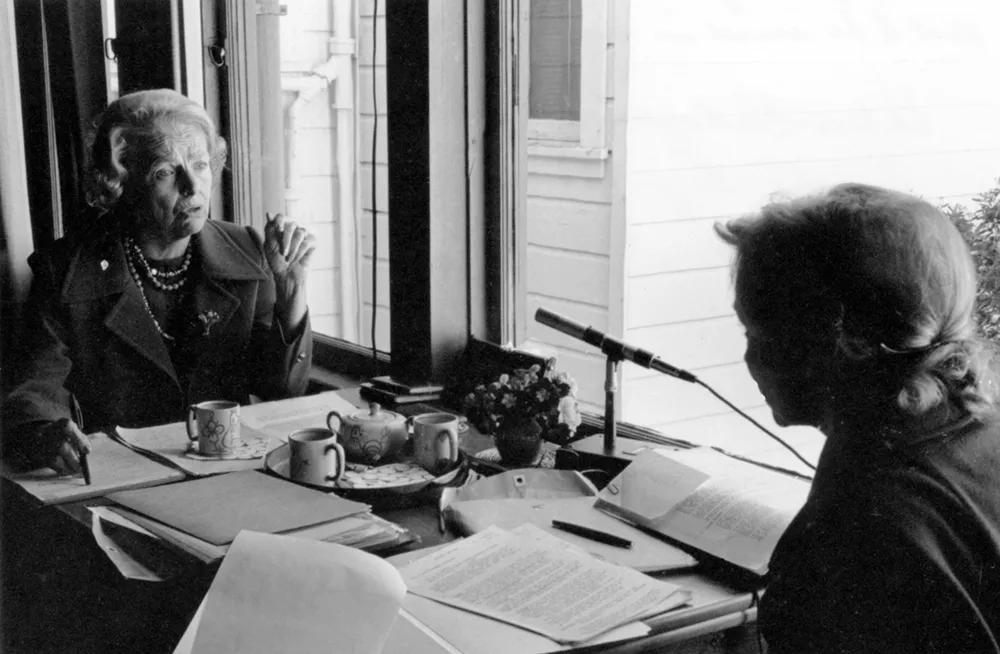
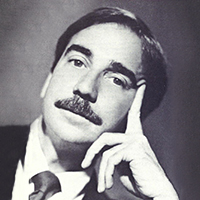
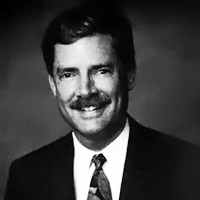
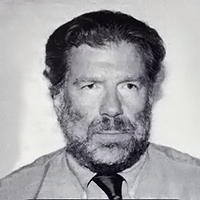
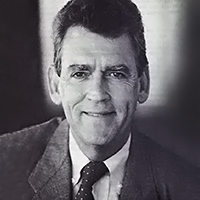
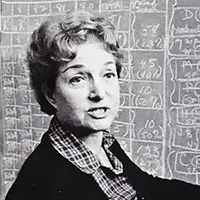
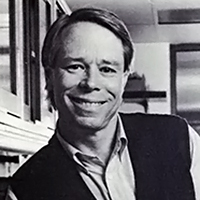
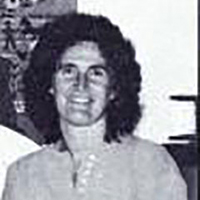
![Angie Lewis, R.N., nurse educator and Clinical Nurse at the University of California, San Francisco [UCSF]. Episodes 2, 6 Angie Lewis, R.N., nurse educator and Clinical Nurse at the University of California, San Francisco [UCSF]. Episodes 2, 6](/sites/default/files/images/lewis_angie_200x200.jpg)
